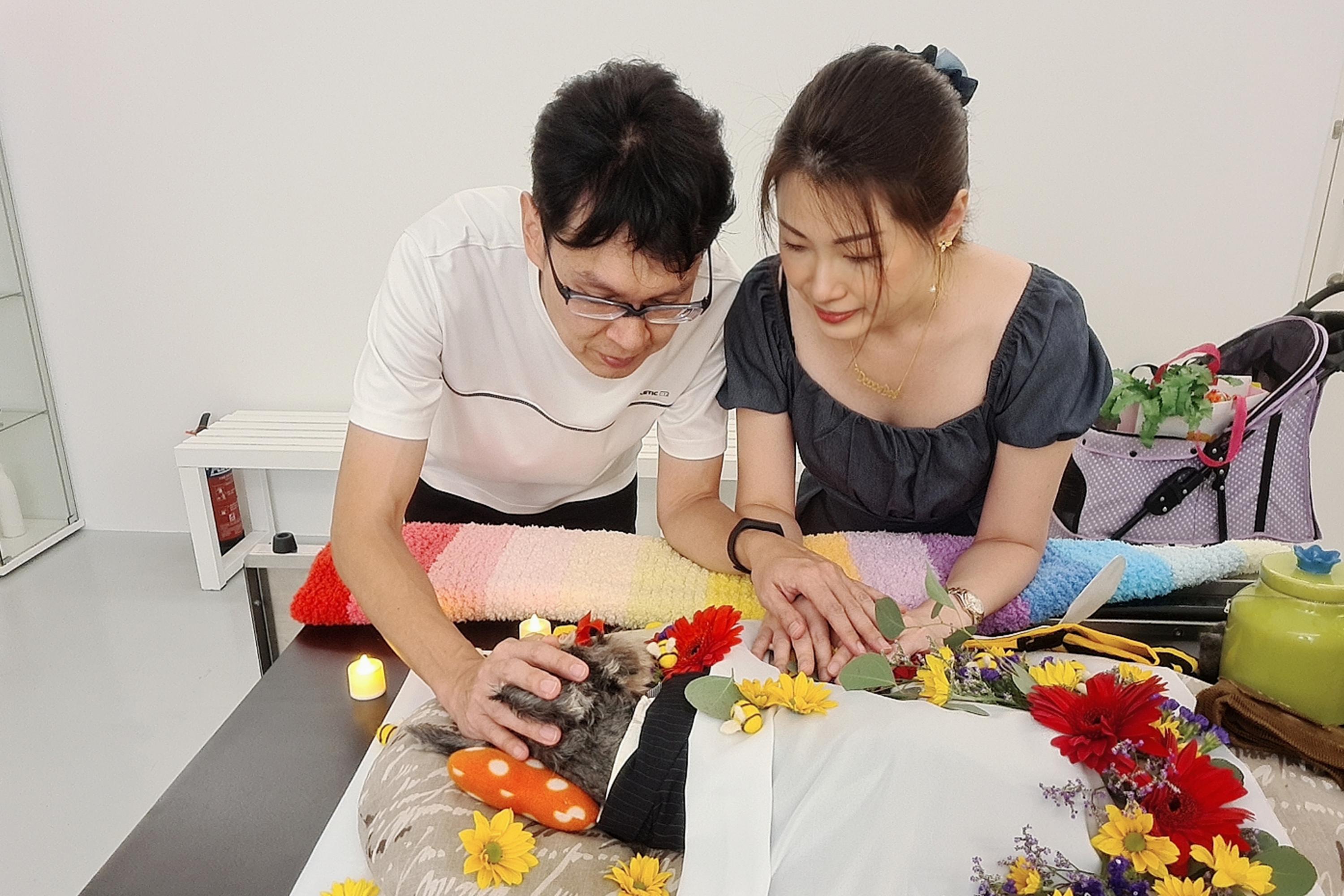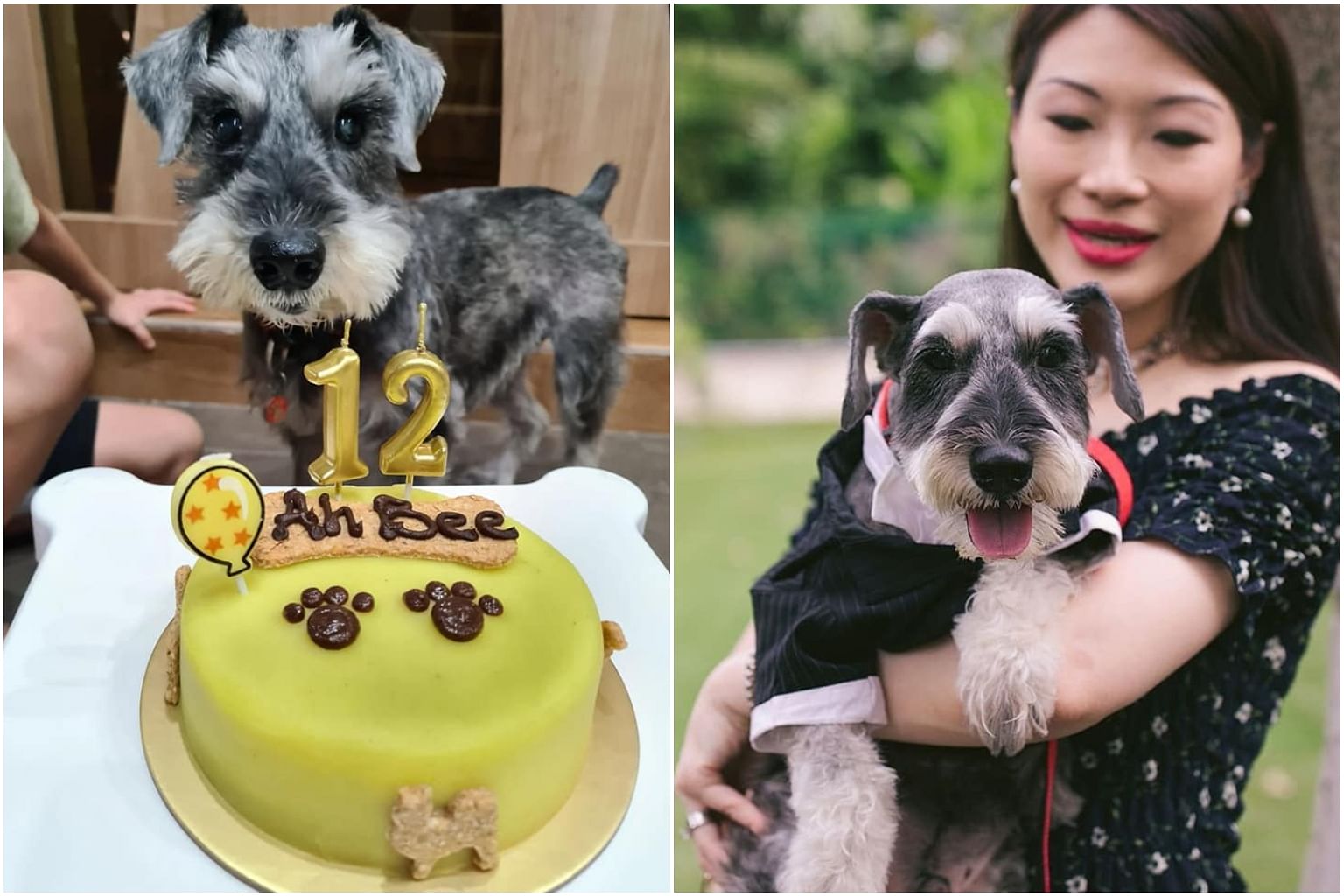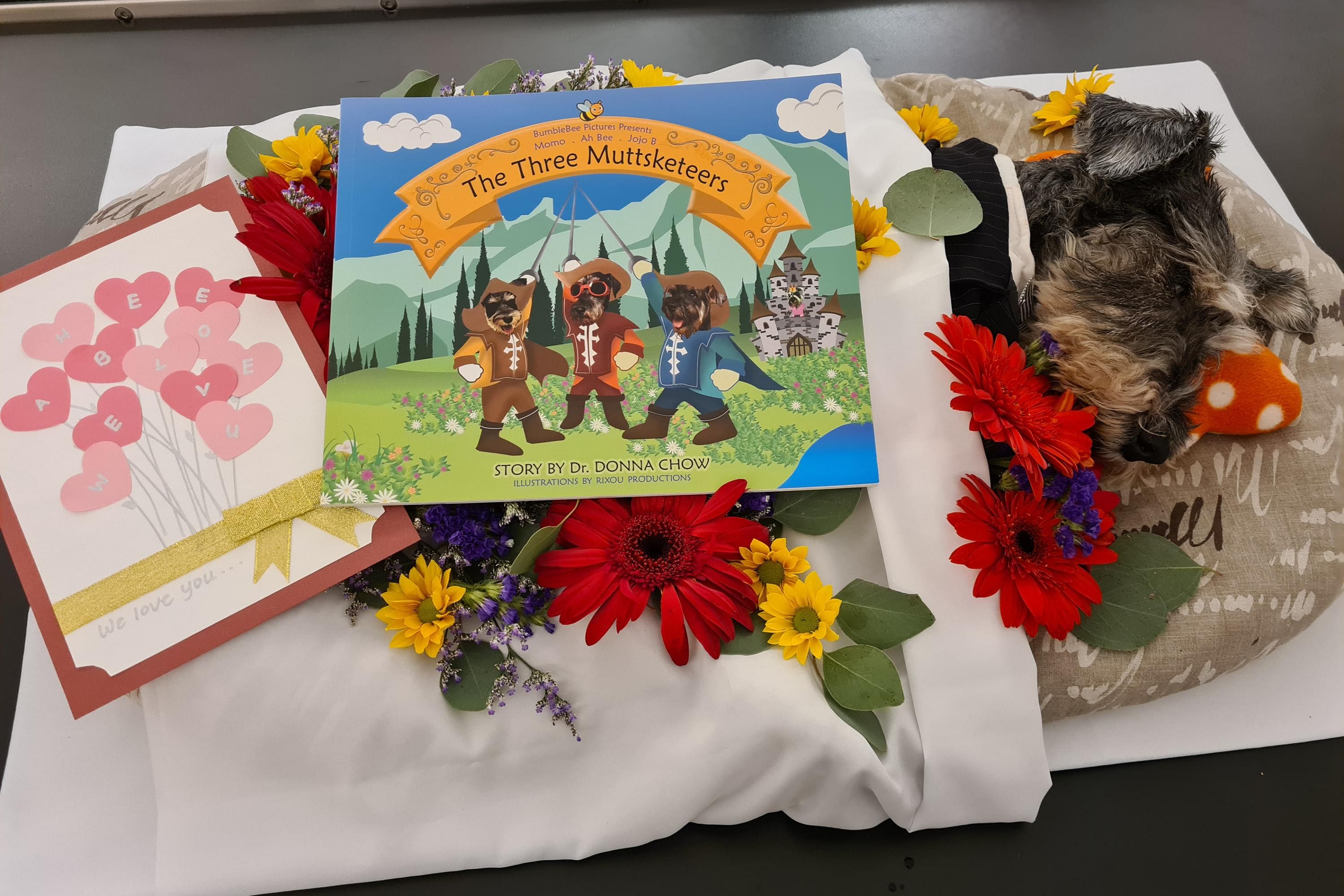Couple euthanise sick dog, only to realise wrong medication issued; AVS investigating
Sign up now: Get ST's newsletters delivered to your inbox

Mr Shaun Koh and his wife Donna Chow sharing a final moment with their deceased miniature schnauzer, Ah Bee.
PHOTO: DRDONNACHOW.COM
SINGAPORE - A couple euthanised their long-term companion to put an end to the dog's months-long struggle with illness in its old age.
But their sorrow deepened when they realised just days after their dog's death on Jan 7 that he had allegedly been handed the wrong medication by the hospital. The medication was meant to treat heart failure for another dog, named Romeo.
The couple's dog, named Ah Bee, had taken these pills for two days, said Ah Bee's owner, aesthetics doctor Donna Chow. She said the dog was a 12-year-old miniature schnauzer who suffered from an eye disease and kidney failure.
"The whole thing was very regretful," Dr Chow, 41, told The Straits Times on Jan 18. "We were grieved beyond words about the medical negligence that has occurred and at the same time, guilty that we were part of it."
Dr Chow and her husband Shaun Koh, 44, lodged a complaint with the Animal and Veterinary Service (AVS) and Mount Pleasant Veterinary Group (MPVG), which treated Ah Bee at its hospital in Jalan Gelenggang.
Both organisations said in separate statements that investigations into the incident are under way and that they were in contact with the dog's owners.
AVS group director Jessica Kwok said in a statement: "AVS will investigate allegations of professional misconduct, negligence and contravention of the Code of Ethics for Veterinarians. Enforcement action will be taken where appropriate."
When contacted, MPVG field director Bessy Chua said: "We are taking steps to ensure our existing rigorous protocols for prescribing and dispensing medications are upheld to prevent errors."
She added: "What we can confirm is that we have no reason to believe pimobendan had an adverse impact on his (the dog's) health or outcome."
Pimobendan is a medication used to treat dogs with heart failure, according to vet publication VCA Animal Hospitals. It stated that common side effects include decreased appetite or diarrhoea, and that these can last longer in pets with kidney disease.
Dr Chow said Ah Bee's health worsened after surgery last May to treat his poor vision in his old age. He later developed kidney failure and internal bleeding, and in December, the couple were told Ah Bee had only months left to live.
Following a discussion with the vet, Mr Koh made the call to euthanise Ah Bee to end his suffering as the dog became lethargic, refused to eat, kept vomiting and had bloody diarrhoea.
But as Dr Chow cleared out Ah Bee's medications the next morning, she noticed pimobendan tablets labelled for another dog. A photo of the delivery instructions showed that the dog Romeo was to be fed half a tablet twice daily - a total of 5mg.
Dr Chow said her family did not check the label at first as there were many tablets issued to Ah Bee. Having fed Ah Bee three doses of the pimobendan pills over two days, she feared they may have worsened his health in his final days due to an overdose.
She said the hospital later acknowledged to her that the wrong medication had been issued and told her that the vet who operated on Ah Bee was not a specialist.
The hospital declined to comment on the specifics of Ah Bee's case, saying it had to adhere to the code of ethics for vets and out of respect for the family's privacy.
It later said there were no board-certified eye specialists locally at the time of Ah Bee's surgery.
The hospital added that there was no evidence that the surgeon had claimed to be an eye specialist, but that she was experienced and had successfully carried out this surgery many times over the past seven years.

The ordeal prompted Ah Bee's owners to start an online petition to urge for a review of the governance of pet healthcare here. The petition has garnered more than 10,400 signatures as at Thursday (Jan 27).
All vets and clinics in Singapore are licensed and regulated by AVS under the Animals and Birds Act, said Ms Kwok, who added that it inspects clinics to ensure that they comply with licensing conditions.
She said AVS has been studying the need for a professional entity to improve professional standards for the sector and had engaged those in the industry since early 2021.
When contacted by The Straits Times, those in the industry refrained from commenting on Ah Bee's case on the urging of AVS as investigations are ongoing.

But speaking generally, animal welfare advocate and former executive director of the Society for the Prevention of Cruelty to Animals Jaipal Singh said the effects of pimobendan depends on the animal's health, dosage given and possible interaction with other drugs.
He urged the public not to make generalisations about vets, which can be a disservice for many professions who work hard for animal health and welfare.
Dr Haoting Chow, honorary editor of the Singapore Veterinary Association, said it was normal for surgical procedures to be done by general practitioners, who have played a key role in animal healthcare long before specialists worked here.
Action For Dogs president Ricky Yeo also urged owners to read the labels on all medication issued.


